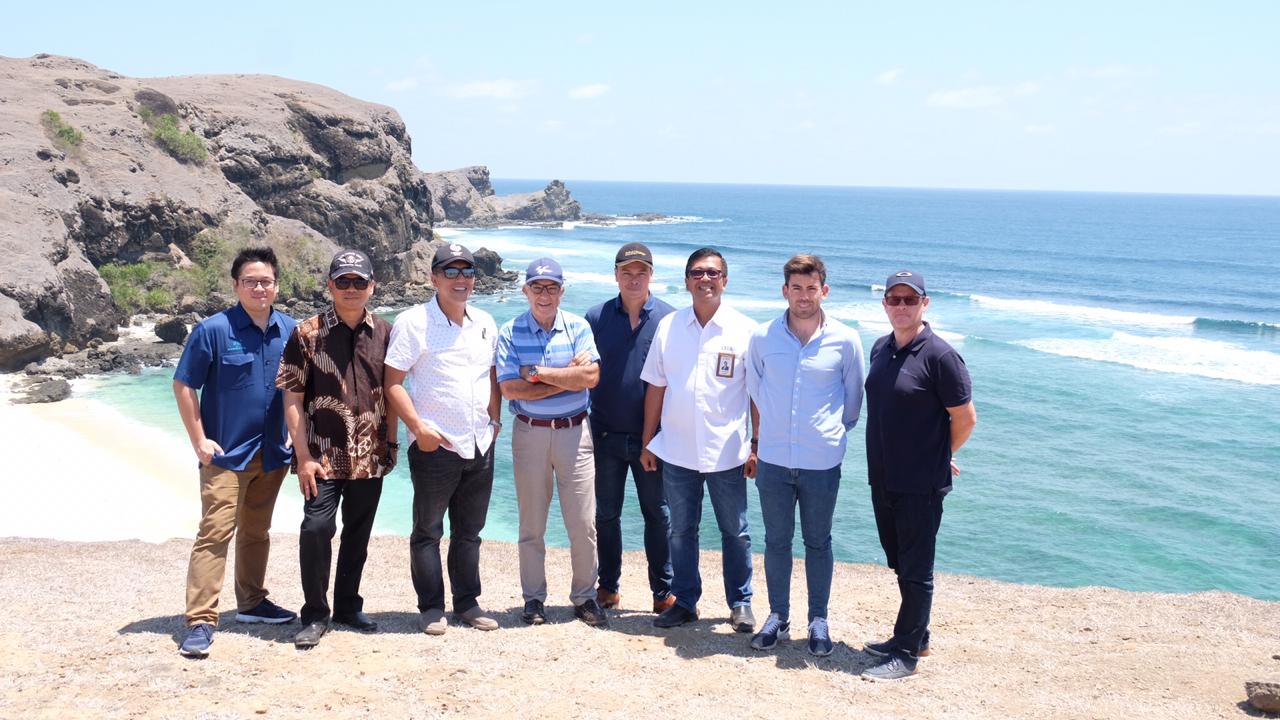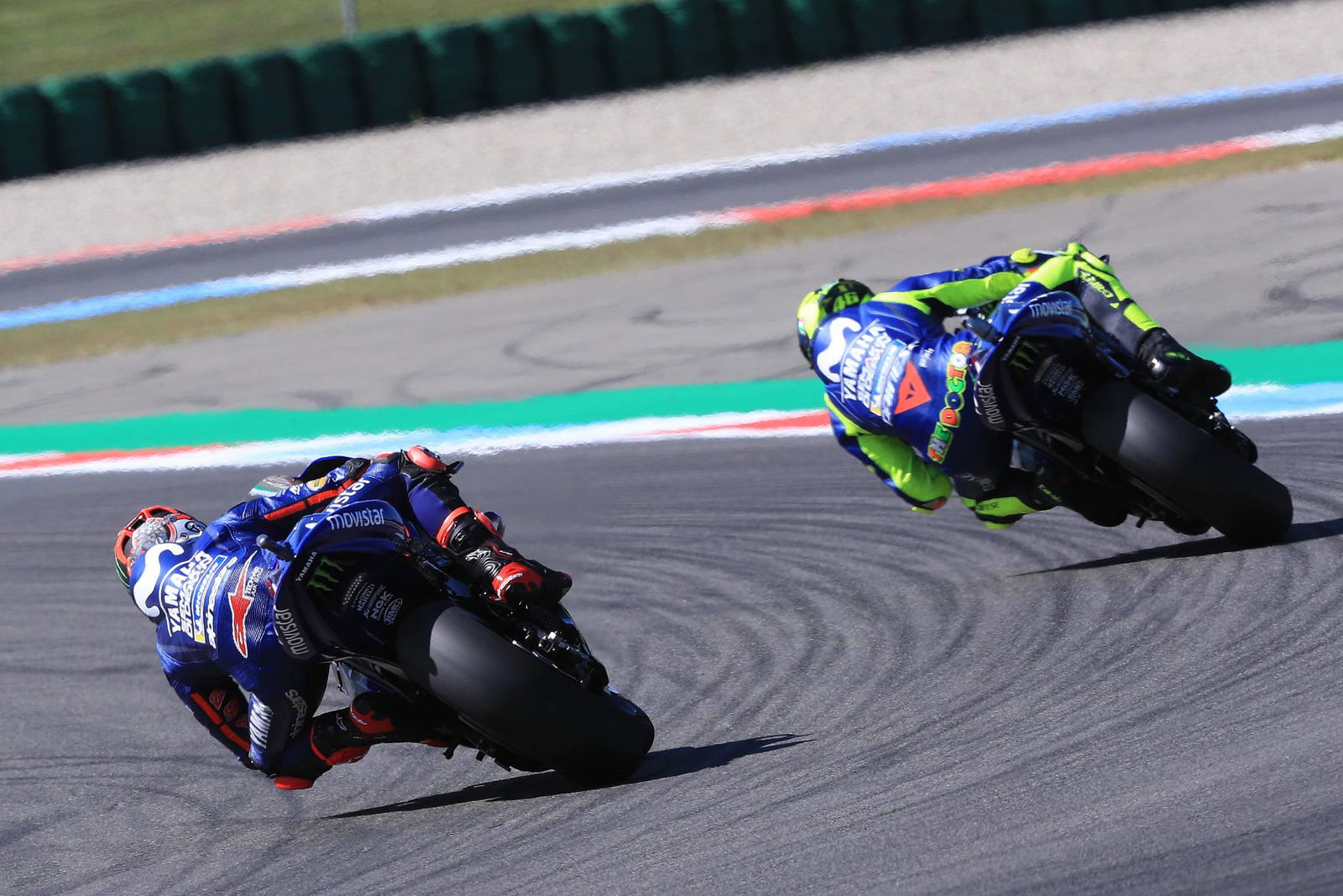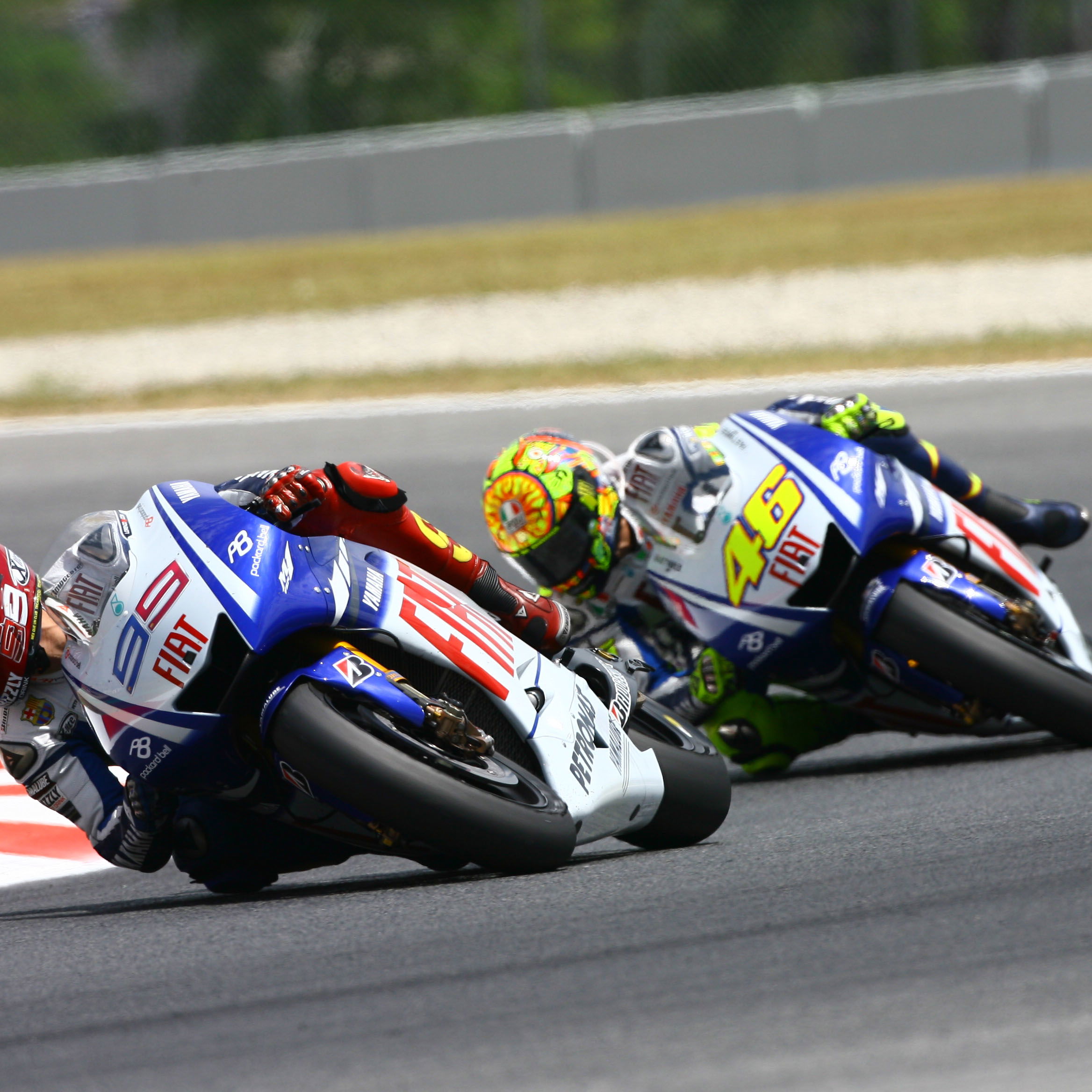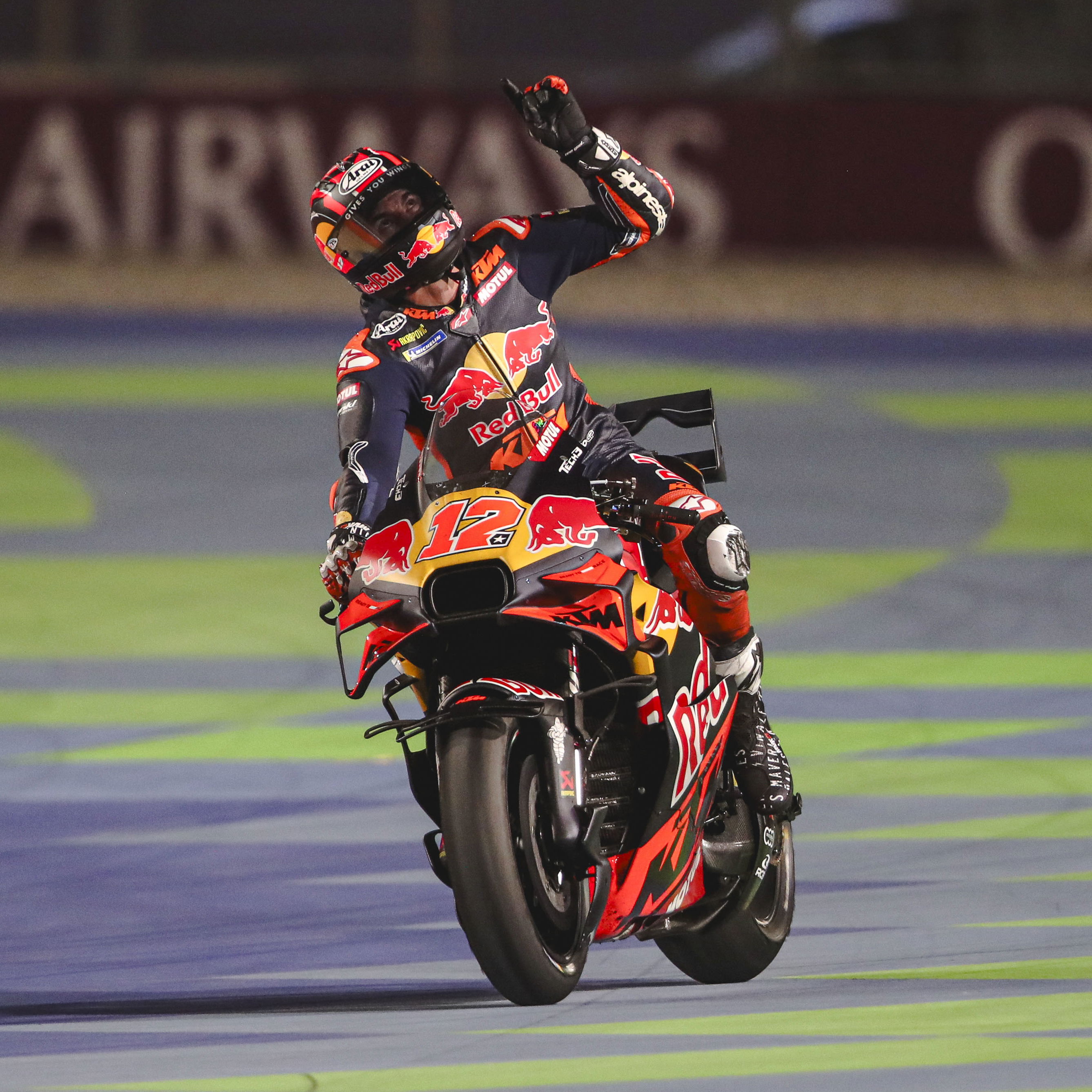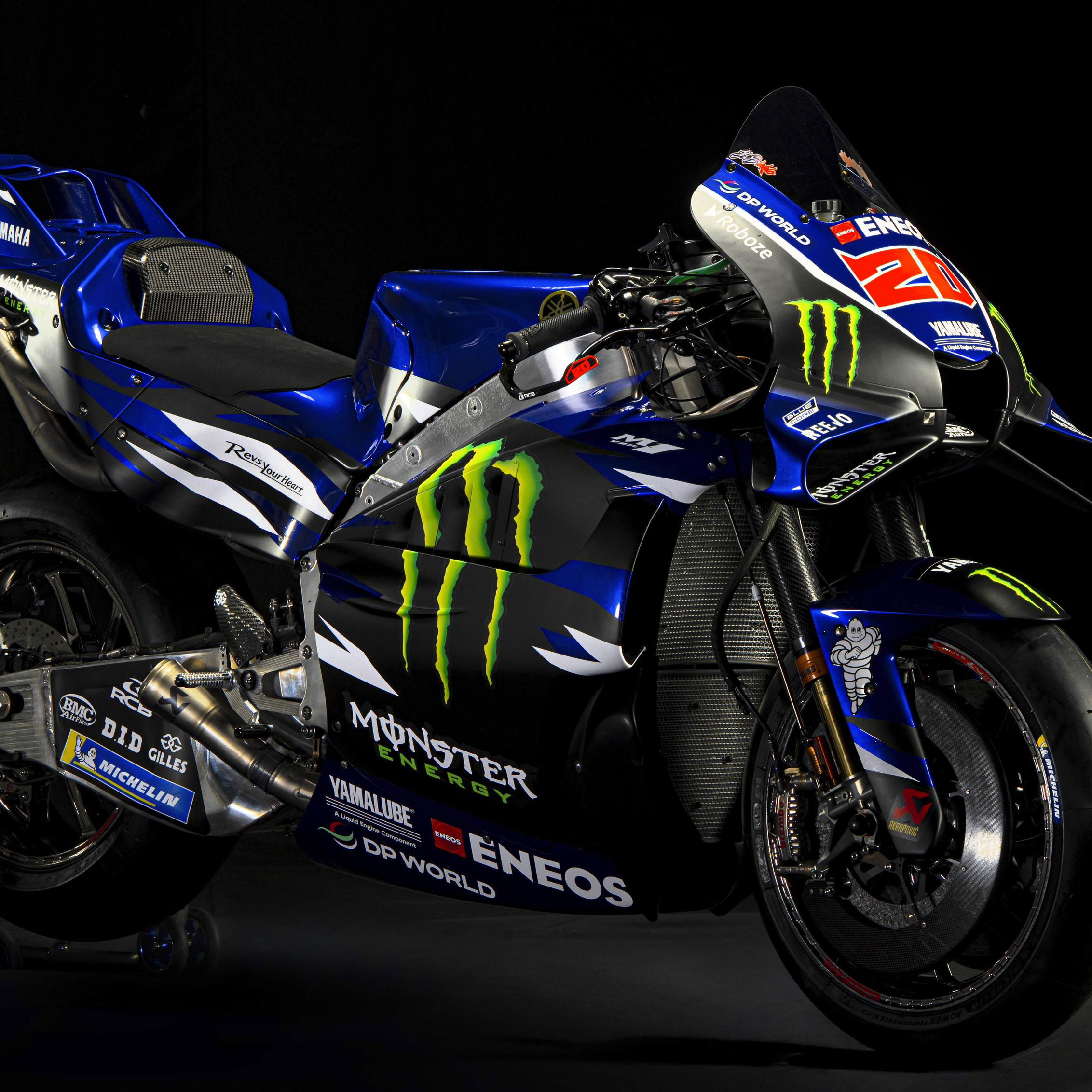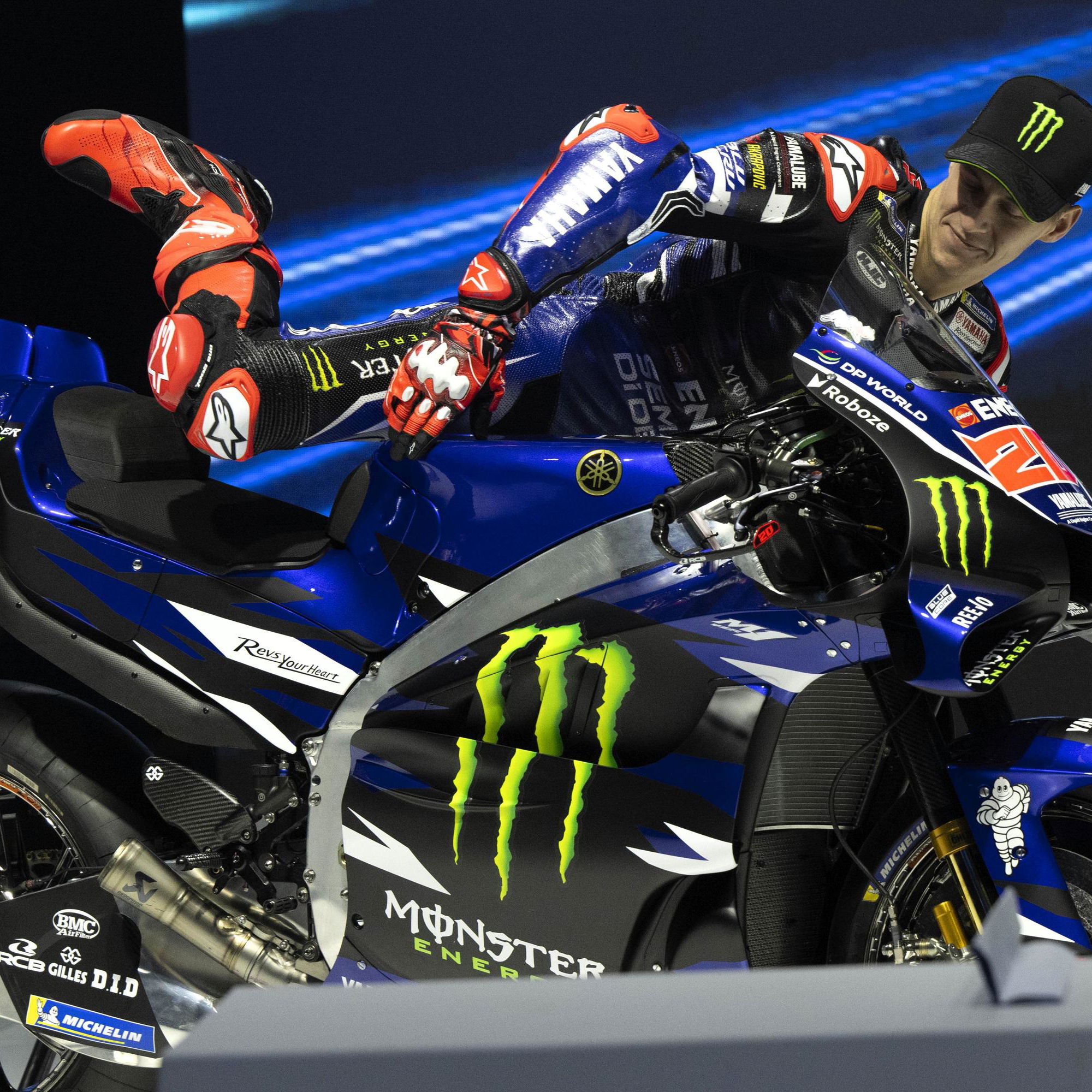MotoGP: EXCLUSIVE: Lin Jarvis (Yamaha) Interview
What a season of extremes it has been for Yamaha’s managing director Lin Jarvis. Having watched over the factory’s longest winless run in the MotoGP since it made its competitive debut in the class in 1972, he has witnessed a recent recovery of sorts.
Not only did Maverick Viñales spectacularly end that winless drought at Phillip Island. Performances from Valentino Rossi and satellite rider Johann Zarco in Thailand and Malaysia pointed to Yamaha turning around its ailing fortunes.

What a season of extremes it has been for Yamaha’s managing director Lin Jarvis. Having watched over the factory’s longest winless run in the MotoGP since it made its competitive debut in the class in 1972, he has witnessed a recent recovery of sorts.
Not only did Maverick Viñales spectacularly end that winless drought at Phillip Island. Performances from Valentino Rossi and satellite rider Johann Zarco in Thailand and Malaysia pointed to Yamaha turning around its ailing fortunes.
Crash.net sat down with Jarvis at Sepang to review the issues that have hampered his riders this year, plans to reorganise and avoid repeating the same mistakes in 2019, communication between the team and factory, and why this seaons has not been quite as stressful as was 2015.
Crash.net:
A lot has been made of the factory’s 25-race winless streak this year. I imagine Maverick’s win at Phillip Island has lifted some weight off the team's shoulders.
Lin Jarvis:
Definitely, yes. It’s been a long, long time since Assen last year that we won prior to Australia. It’s not been easy. The back end of last year was not easy because we started the year so strong, and with Vale’s win in Assen, we were still okay. We’d already faced some problems in some races, and then we faced them again and again. So the back end of last year was quite tough, frankly, because such a positive and optimistic start. Then coming to this year, obviously we had hoped that we would be in better shape. Our engineers had been working on solutions.
Then when we came into this year and we encountered the same sort of problems more or less, it was pretty frustrating and difficult for the riders to accept, for us difficult to accept but especially for the riders, obviously, because they’re there to win races. So honestly it’s been pretty tough. We’ve had so many meetings and discussions and evaluation and investigation to find the way forward. So finally I would say we are far from being out of the woods at this moment. There’s still a lot of work that we have to do to be fixed and to be ready for next season.
But anyway, that win gave us a feel-good factor again. That just kind of lightened the load a little bit. I would say it if anything will really serve to motivate us because we’ve already made our decisions on what we plan to do for next year. So now this win at this moment doesn’t mean everyone’s going to relax and say the bike’s okay. On the contrary. Yes, that’s what we’re here for. That’s what we want to experience.
So I think it’s really good. I think for Maverick it was especially important. He has been a little bit, I could say kind of frustrated and depressed. Especially he started the previous season so strong throughout the winter and everything. Then it’s been a hard grind for him. I think he’s a little bit lost confidence. Also maybe in us and the team. Maybe a little bit sometimes in himself. To re-find that it’s still there and we can still do it, I think is a big boost for him psychologically too.
Crash.net:
You just said there you’ve already plans in place for next year. Can you give us a an idea as to how things might be reorganised? Will that reorganisation take place in the factory or team?
Lin Jarvis:
I can’t. I’m sorry. It’s too early to say. I will say it will obviously be across all of the different parameters because team-wise anyway we’ll be different next year. Maverick will change the crew chief. So this will be a change. Wilco [Zeelenberg – Viñales’ rider coach] will move to the SIC team. So then he’ll have a new rider performance analyst on his side. So these are two important people in his side that will change, in Maverick’s side in particular. So yes, there will be other changes within our organization, and surely in the way that we try to fix the problems. So I can’t really say much more than that. We will have more engineers and new engineers, but I can’t say where.
Crash.net:
Maverick was quite outspoken at Phillip Island, saying Yamaha needs to listen more to what he wants from the bike. Is there be a possibility that the factory works in two separate development directions, one for each rider?
Lin Jarvis:
I don’t really agree with his comments. Obviously, there are things that he’s looking for and is frustrated with, and he could then find them during last weekend. But Valentino would probably say the same to you. So I don’t think it’s specifically a Maverick problem. I think it’s Maverick/Valentino. Both riders are saying, ‘Why don’t you listen to me? Why can’t Yamaha as a factory give me what I want?’ So for me it’s the same. It’s quite easy.
Obviously, we end up with some things that are unified. One thing unified is the engine spec. That’s something we can’t change. We can only choose one. So it’s very, very important that we choose the correct spec as we start the year. More or less, all other things can be adjusted, modified, changed, personalized. Already there are quite some differences in their two bikes. With the core being the same, there are quite some differences. So I think it’s not really right that we have not listened to Maverick - not at all. We’ve listened to both, but both are frustrated.
Crash.net:
We’re now in November of this year. Can you comprehensively say what has been the major issue with the 2018 M1? Going off rider comments it seems the chassis is really good, while the engine and electronics are not…
Lin Jarvis:
Definitely I think a sweeter engine would have been advantageous to our riders. I think the engine’s a little bit harsh in the low RPMs, [in the] first touch, first contact [with the throttle]. That’s definitely one of the major things. The electronics is the other thing. The way to manage and work with the new unified software. I definitely believe our competitors have an advantage on us because they’ve understood more how to work with the system. That means that we’ve been struggling in low traction tracks, struggling with spinning, struggling with drive. Very often our riders come out of a corner and they can only touch the throttle and bring on the throttle as the bike’s coming up, whereas it looks like our competitors are more or less able to automatically open the throttle and it all self-manages itself. So it picks itself up and they drive away from the corner. That’s where we’ve been struggling.
So, I think it’s a combination of both things. We need to get both right for next year. I think what you said is true. Our chassis is pretty sweet. We’ve not been able to exploit it some places because of that problem with grip and traction was also with braking. So one of Yamaha’s great strong points is be able to flick in fast, but if you can’t stop the bike then you’re not able to benefit from that strong point of the bike. I think Phillip Island is a track where you don’t really have strong or heavy braking, and this then played to our strong points and minimized our weak points. These are the areas where we have to work. So I think we know what we have to do. But still, we have to do it.
Crash.net:
Are you able to give an indication of what you will be testing at Valencia? I imagine the new engine will be there.
Lin Jarvis:
Of course we will be testing the new engine there, yeah. We have two tests [one at Valencia, one at Jerez], both important. At each different test, we’ll be testing different things. But I would say anyway in Valencia we’ll be starting with the core, and then we’ll see what happens. I can’t give you any more details.
Crash.net:
And the principle aim of the new engine will be to improve power delivery in low revs?
Lin Jarvis:
Yeah.
Crash.net:
Aragon was a really difficult weekend for you, but from there things were good in Thailand, satisfactory in Japan. Phillip Island was great for Maverick and both riders have been strong at Sepang. What changed after Aragon?
Lin Jarvis:
Yes [something has changed], but small steps. Yes, we are making some progress and some of the progress on the electronics in particular, we’ve applied. Obviously we can’t do anything with the engine, so in electronics we are making some small progress. So surely, yes, that has helped. I would say really Thailand we were helped by the tyre construction. Michelin were obliged to bring a very hard carcass [rear] tyre to that racetrack and that worked well for us. So for me, the big difference in Thailand was the tyre above all else. Motegi was not bad. Not fantastic, but not bad. Phillip Island we just talked about. That was a track that played to our strengths and minimised our weaknesses. So honestly I don’t really feel major steps have been taken place. I think we’ve been fortunate to go to a couple of tracks with circumstances that worked better.
Crash.net:
You previously said more engineers will be working on next year’s project. Electronics engineer Michele Gadda has come across from the factory’s World Superbike programme to work on the MotoGP side of things from September. Will these engineers be promoted from within Yamaha or have you recruited engineers from other teams?
Lin Jarvis:
It will be both. They will revisit the organization in Japan and if it’s in Japan, it will be internal. There we need to just work in a different way and there will be hopefully some increased manpower there. In Europe, we’ve reallocated some of the priorities and responsibilities to some of our people, but we will surely need also to accrue additional staff.
Crash.net:
At the beginning of this year Johann Zarco said he was aiming to replicate the old style of Jorge Lorenzo to get the best from the M1. Some engineers still say Lorenzo’s style is the way to ride the bike. Do you feel that you lost your reference when Jorge left for Ducati?
Lin Jarvis:
No, I don’t think so. I think if you look at the beginning of last year and you look at what Maverick was doing throughout the winter and the early races, he was flying. He was on a mission. He was strong. He was fast. I think there have been changes to the tyres obviously since Lorenzo’s time. So this is a very important thing that we sometimes are unable to make the Michelin tyres work well. I think our competitors have made progress in leaps and bounds on the all-important electronics area. So I don’t think that we have suffered per se because of Lorenzo’s departure. Also Lorenzo, obviously now he’s adjusted his style to ride the Ducati. So no, I don’t really buy that. It’s true that when he was here his style worked very, very well, and what Johann said is true. The M1, that is the way for fast, flowing corner entry. But other circumstances have changed. I don’t think it’s because Jorge left.
Crash.net:
At Aragon Valentino was asked about communication with the factory and where he believes the development direction is going. From his reaction, we got the impression that he wasn’t sure what was on the horizon in terms of next year and where the bike development is going. Has that been an issue, communication between the factory and the riders hasn't been so clear?
Lin Jarvis:
I think the problem is that many of the riders’ questions and demands and requests remain unanswered for a long, long time. So, then you maybe start to lose faith. If you come with a problem, but nobody’s able to come with an answer, then of course you feel that the communication is broken down because you don’t understand or you don’t recognise my problem, or whatever. So I think it’s an expression of frustration of the time it’s taken for Yamaha to understand that they are in difficultly and for the solutions to come. As I said still, we are not there yet. I think now we’ve really got a solid understanding inside the factory. We know what we have to fix. But now we have to still do it. From today [interview was conducted on qualifying day at Sepang] we have five months to fix it. The winter test will be important. Obviously, we have two coming up. Two important ones before the real winter break. So these are very, very important to set the base direction for the bike for next year. Then after that, we have only two tests before the season starts. So, we have to get it right. There’s no room for error. I sincerely hope we do, but nobody knows. In my opinion, until we get to Sepang next year, we don’t know.
Crash.net:
You’ve been working with the factory Yamaha team since 1999. Is this season among the biggest challenges you have faced?
Lin Jarvis:
Yes, for different reasons, I would say. I’ve been through other seasons where we’ve won races, and we’ve been challenged in many other ways. So, the other challenges I would say in those years were more challenging for me because the problems were more in the management issues. So that was a more complex thing for me to deal with. I’m not an engineer, so there is very little that I could personally, me myself, really influence and enter into to manage the problems that we’re having now. The biggest problem this year I would say has been for the whole team, is to keep momentum, keep motivation, keep plugging away. That’s been tough. But as a manager, I faced bigger, personally challenges in other situations.
Crash.net:
At the end of 2015 you jokingly said you relied on gin and tonic to help ease the stresses of what was going on in the championship and between your riders. From what you’re saying, you haven’t been as gin-reliant this year…
Lin Jarvis:
No, actually much, much less than sometimes in the past. Frankly, it’s been a different scenario now. Some of those situations in the past were a lot of tension, a lot of ego on the line, championships on the line. That’s very, very different. Right now, we’ve had to put ourselves through this incredibly long period since our last win and keep going, keep pushing, keep trying to make progress. I think there has been a turning point. I think that that turning point was probably about the time of maybe the Thai Grand Prix or just before. So for me now we’re beyond… It’s not just because of the results. That’s also because of the realisation and understanding our problems, and then to come out of them. So I feel that now we are on our way out. Prior to that, we were just in the middle of it.
